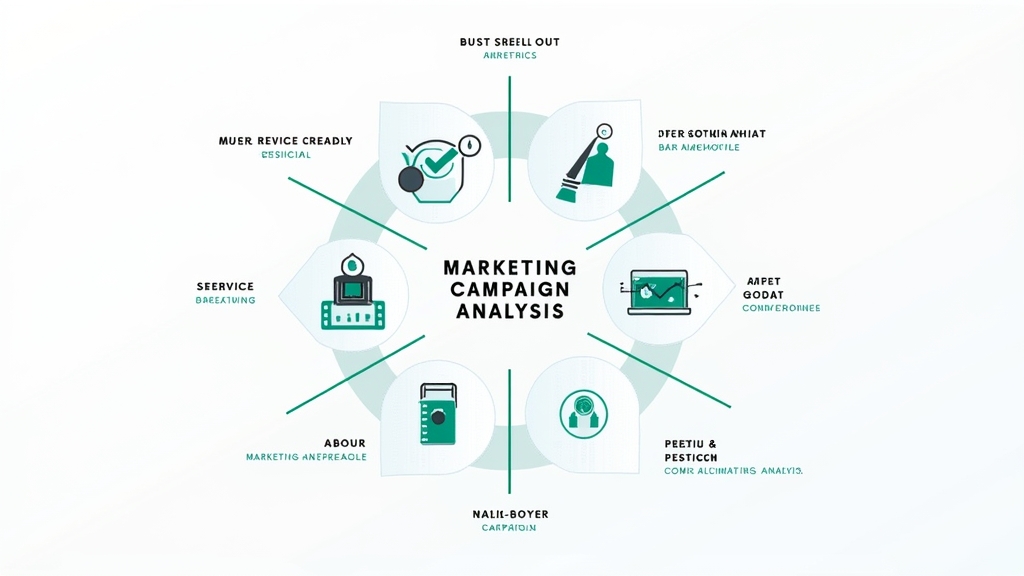Marketing Campaign Analysis: A Comprehensive Guide to Evaluating Success
Introduction
Understanding the Importance of Marketing Campaign Analysis
Marketing campaign analysis is essential for any business aiming to succeed in today’s competitive landscape. By evaluating your marketing efforts, you can understand what works and what doesn’t, allowing you to make informed decisions moving forward. This analysis helps identify strengths and weaknesses in your campaigns, enabling you to optimize strategies for better results. Whether you’re a small business owner or part of a larger organization, knowing how to analyze your marketing campaigns effectively can lead to increased sales and improved customer relationships.
Defining Marketing Campaigns
What Constitutes a Marketing Campaign?
A marketing campaign is a coordinated series of activities designed to promote a product or service. It typically includes various channels such as social media, email, print ads, and more. The goal is to reach potential customers and encourage them to take action—like making a purchase or signing up for more information.
Types of Marketing Campaigns
There are several types of marketing campaigns that businesses use:
- Digital Campaigns: These include online advertising through social media platforms, search engines, and websites.
- Email Campaigns: Sending targeted emails to engage existing customers or attract new ones.
- Content Marketing: Creating valuable content like blogs or videos that inform and entertain audiences while promoting products.
- Event-Based Campaigns: Hosting events (online or offline) that draw attention and generate leads.
Understanding these types helps tailor your approach based on your goals.
Goals and Objectives of Marketing Campaign Analysis
Setting Measurable Goals
Setting measurable goals is crucial for effective marketing campaign analysis. SMART goals—Specific, Measurable, Achievable, Relevant, Time-bound—provide clear targets. For example, instead of saying “increase sales,” aim for “increase sales by 20% over three months.” This clarity allows you to track progress accurately.
Aligning Objectives with Business Strategy
Your marketing objectives should align with your overall business strategy. If your company aims for growth in a specific market segment, ensure your campaigns target that audience effectively. This alignment ensures that every effort contributes directly toward broader business goals.
Key Metrics for Analyzing Marketing Campaigns
Conversion Rates and ROI
Conversion rates measure how many people took the desired action after engaging with your campaign. Calculating Return on Investment (ROI) helps determine if the money spent on the campaign was worth it. A high conversion rate combined with positive ROI indicates successful strategies.
Engagement Metrics and Customer Feedback
Engagement metrics like likes, shares, comments on social media posts indicate how well audiences connect with your content. Additionally, gathering customer feedback through surveys can provide insights into their experiences and preferences.
Brand Awareness Indicators
Brand awareness measures how familiar consumers are with your brand. Tools like surveys can help assess this metric before and after campaigns to see if awareness has increased significantly.
Tools and Techniques for Effective Analysis
Digital Analytics Tools
Digital analytics tools like Google Analytics offer insights into website traffic patterns related to specific campaigns. You can track user behavior from initial contact through conversion stages.
Surveys and Customer Feedback Mechanisms
Surveys are an excellent way to gather direct feedback from customers about their experiences during the campaign period. Use tools like SurveyMonkey or Google Forms for easy distribution.
A/B Testing Approaches
A/B testing involves comparing two versions of an ad or webpage against each other to see which performs better. This method provides data-driven insights into what resonates most with audiences.
Common Challenges in Marketing Campaign Analysis
Data Overload and Interpretation Issues
With so much data available today, it’s easy to feel overwhelmed by numbers without understanding their significance fully. Focus on key metrics relevant to your goals rather than trying to analyze everything at once.
Budget Constraints
Limited budgets may restrict access to advanced analytics tools or comprehensive research methods needed for thorough analysis; however, even basic tools can provide valuable insights when used correctly.
Keeping Up with Market Trends
The fast-paced nature of digital marketing means trends change quickly; staying updated requires continuous learning about new tactics while analyzing past performance effectively remains critical too!
Best Practices for Conducting a Successful Analysis
Establishing a Clear Framework for Evaluation
Create an evaluation framework outlining what metrics will be analyzed based on set objectives beforehand! This structure streamlines processes ensuring nothing important gets overlooked during assessments later down the line!
Continuous Monitoring and Adjustment
Regularly monitor ongoing campaigns instead of waiting until they conclude before assessing effectiveness! Adjustments made mid-campaign often yield better results than those implemented post-analysis only!
Leveraging Insights for Future Campaigns
Use findings from previous analyses as stepping stones towards future successes! Learning from past mistakes enables refinement leading toward higher success rates across subsequent initiatives!
Conclusion
The Value of Ongoing Marketing Campaign Analysis in Driving Success
In conclusion, ongoing marketing campaign analysis plays an invaluable role in driving success within any organization! By setting measurable goals aligned strategically while utilizing appropriate tools/metrics throughout evaluations—you’ll not only enhance current efforts but also pave pathways towards future achievements!
📢 Explore More: Continue Your Journey!
If this article helped you understand how vital marketing campaign analysis is for success check out Effective Strategies For Boosting Your Brand Awareness! It covers powerful insights helping you grasp ways brands increase visibility efficiently.














![NEEWER 55W 18"/45cm Ring Light Kit [New Version], 5600K Dimmable ...](https://m.media-amazon.com/images/I/414QLqvZWLL._AC_.jpg)








